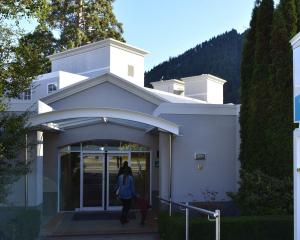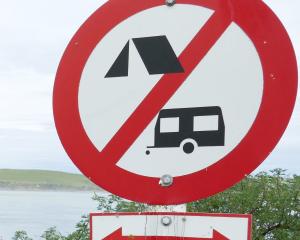Mt Barker farmers Bill and Raylene Jelley have been awarded a $3375 reduction in Queenstown Lakes district commissioner's charges invoiced by John Matthews, following a hearing on Monday.
The decision to reduce the $19,462 fee (including GST) was released by independent commissioner Denis Nugent on Thursday, who has held Mr Matthews exceeded "by a small amount" the number of hours that could be reasonably spent writing the resource consent decision, and that the commissioner's charges resulted from a council error in failing to notify the consent application in 2005.
The size of the reduction was small, reflecting the assumption that had the consent been notified correctly, the Jelleys would still have faced appeal litigation by a "trenchant" neighbour.
The total revised charge is now $16,087.25 (including GST).
Mrs Jelley said yesterday she was relieved the matter was finally over and that a reduction had been made.
"It is all a help. We have been through enough hassles and will plod along as we are."
The couple's surveyor, Matt Suddaby, said yesterday while the reduction was not as much as hoped for, "it is pleasing that commissioner Nugent recognised that the charges were not fair or reasonable".
The Jelleys wanted to subdivide their property and obtain a building platform. They applied for consent in 2005.
Their neighbour, the Miro Trust and its beneficiary Wellington lawyer Mike Garnham, appealed the consent because it had not been notified. When consent was granted last year, another appeal was issued. However, the parties settled after mediation earlier this year.
Mr Matthews charged $325 an hour to determine the case, which Mr Suddaby submitted was excessive and unreasonable.
Mr Nugent noted the first consent application in 2005 had wrongly proceeded without notification, resulting in nine acts of litigation between June 2007 and October 2008, which the trust ultimately lost.
The Jelleys' fresh application for consent in 2009 was notified to the trust but the history was such it "would lead anyone hearing the application to expect vigorous opposition", Mr Nugent said.
"What distinguished this case from other two-lot subdivisions was the history of litigation by the neighbour and the expectation, properly held in my view, that this neighbour would continue the litigation both at the council hearing and subsequently. I agree that in those circumstances it was appropriate to appoint senior legal counsel as chairman of the hearing panel.
"Notwithstanding that issue, however, the neighbour produced no expert evidence at the hearing examining the effects of the proposal ... The only evidence on effects in opposition was that of Mr Garnham.
"As his trenchant opposition was already apparent from the prior litigation, his lay evidence should not have added any complexity to the case because it carried little weight. The decision [of Mr Matthews] makes this point," Mr Nugent said.
However, counsel for the trust had raised several legal issues that Mr Matthews had to address and eventually dismissed, Mr Nugent said.
He did not consider Mr Matthews' hourly rate was unreasonable, even though it was at the top of the range charged by the QLDC's commissioners.
The charges were actual charges and no public benefit was derived from Mr Matthews' work. He had to spend additional time on the case because of the nature and scale of the trust's opposition.
It took 36.6 hours to prepare, which was "at the upper bounds" of what could be considered reasonable - "and could be beyond that upper bound, although not by more than a handful of hours".
Mr Nugent did not blame the Jelleys for reapplying for consent. He said they had been left in that position because the council's original delegate, CivicCorp, had failed to notify the 2005 application to the Miro Trust.
It was unfair of the council to suggest it incurred significant costs when it was the council's error that had been at the foundation of the litigation.
Mr Nugent's reassessment took into account what the Jelleys might have been invoiced had the council not made the error. Even then, it would be fair to presume the neighbour would still have appealed to the Environment Court and on to superior courts, with the Jelleys facing large costs.












